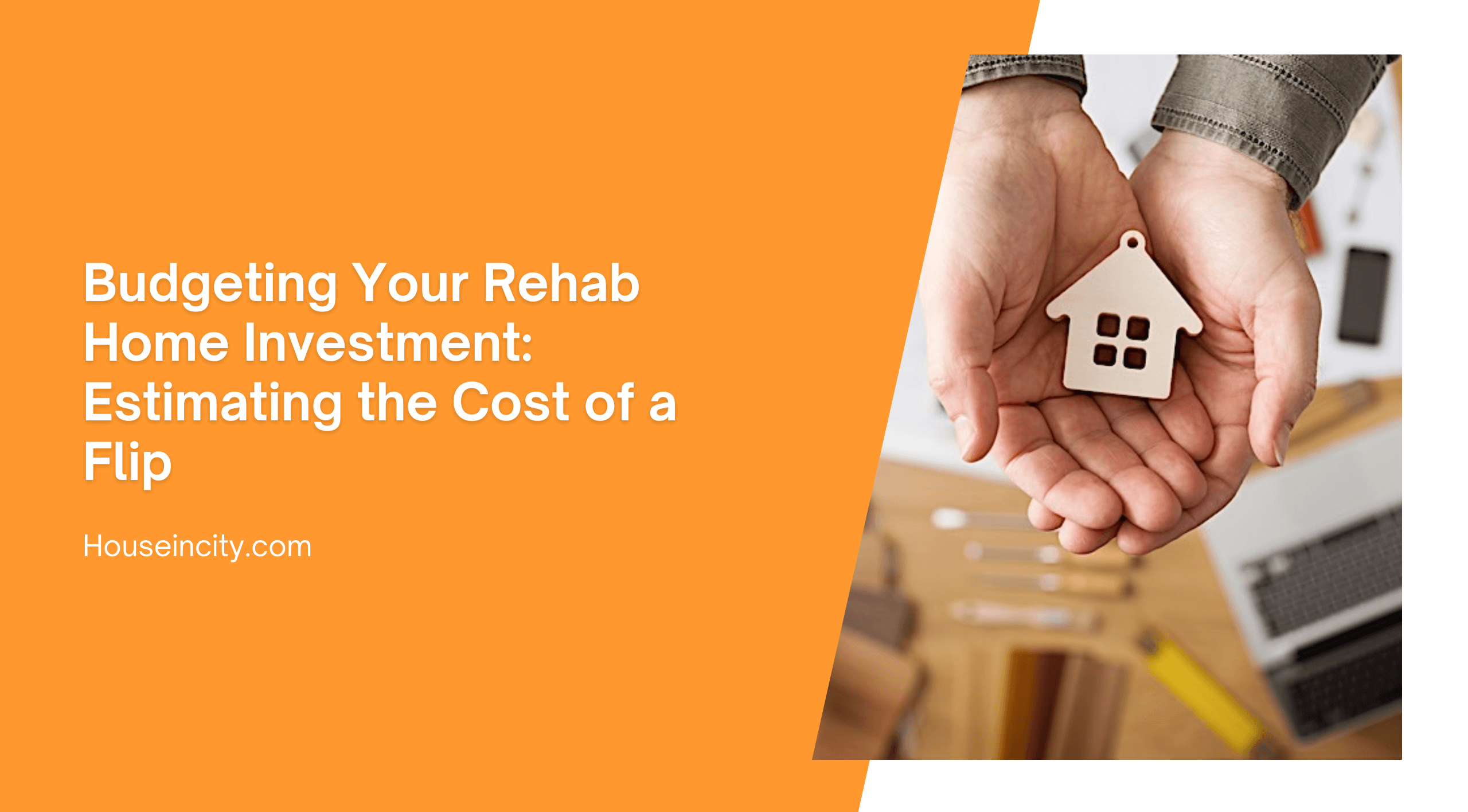Budgeting Your Rehab Home Investment: Estimating the Cost of a Flip – It is very important BEFORE you buy a piece of real estate that you are aware of the costs going in. Most people grossly underestimate the amount of work, time, money, and effort that goes into a successful flip. In today’s ever falling market it is important to make educated investment decisions to avoid a flippers worst nightmare- losing money. There is nothing more disheartening then pouring yourself into a flip and coming out a loser. Following my ten steps will help keep you on track for a successful flip.
1. Get the VERY BEST home inspector you can find. If at all possible get recommendations from other real estate investors, friends, neighbors, whatever. It is your real estate agents job to sell you a home- that is all. It is in their best interest for you to buy, and therefore not necessarily get the most through inspection. I would highly recommend not getting a referral from your agent for this reason. While most real estate agents are honest it is just too important to risk. This will help you avoid surprise repairs when I buyer comes in with their inspector.
2. Once you decide on a project it is very important to develop a plan.
What does this have to do with estimating costs?
EVERYTHING.
Walk through your project room by room and make a through list of everything that needs done in that room. Sleep on it. Do another walk through to make sure you have everything written down. Keeping yourself organized is SO important in making sure you are efficient and effective. Time = money epically in real estate. Don’t waste your time with disorganization.
3. Now that you have a plan you need to outline your time line. Estimate how long it will take to get each project done, the order in which you want to get it done, and who you want to do it. By keeping everything organized you avoid costly mistakes like installing new carpet before you tear down a wall. I like to lay my plan out in an Excel spreadsheet. This way I can keep all of the information I need in one place. Check the Internet for templates or create your own.
4. Estimate your costs. Go to the hardware store and window shop with your Excel spreadsheet and a pen. Leave your wallet at home. Get prices for the equipment and materials for things that you are going to do yourself.
5. Get WRITTEN estimates and contracts from all contractors including price and date of completion. There is absolutely no substitution for getting these two pieces of information in writing. You are setting yourself up to lose thousands of dollars if you do not. By taking this step you are avoiding problems that you don’t need to have. Keep the estimates and contracts in a very safe place.
6. Budget. This seems like a no brainier- it is not. It is SO tempting to just go to the hardware store and start buying stuff. Do not do this. You will regret it. Keep all budget estimates and actual costs in your Excel spreadsheet. This way you can tell at a glance where you are vs. where you should be. I always assume that I will spend 10% more than I project. I am usually right. Give yourself a little bit of room in the budget- it’s worth it to avoid sleepless nights.
7. Spend money on landscaping. New flippers tend to forget about the ever important curb appeal. I am always amazed when I do landscaping how much everything costs. Don’t forget to allow plenty of money in your budget for landscaping, and don’t forget to do it. First impressions can make or break a home- don’t let an ugly outside undervalue your project.
8. Rent/ borrow tools when you can. While it’s probably worth it to invest in a hand drill there are plenty of tools you do not need to own- even if they are really cool. Most hardware stores rent out equipment for a reasonable daily rate. This will save you cash and give you access to a wider variety of tools that can make your life easier.
9. Buy stuff on sale/ with a consumer credit card. Many home repair stores have their own credit card and they want you to use it. Generally there is a discount for signing up and using their card. Keep your eye out of opportunities to use this to your advantage. If you happen to notice that the carpet that you need is on sale AND that the store will give you 10% off if you open a credit card you can save yourself BIG money with very little effort.
10. Get a good home warranty. Not only will home warranties cover the buyer if something goes wrong after the sale. Some will even cover the seller of the home if anything is wrong while the home is on the market. Make sure to read the warranty and fully understand what it does and does not cover. It is worth a few hundred dollars to have yourself protected from expenses that could cost you thousands.
